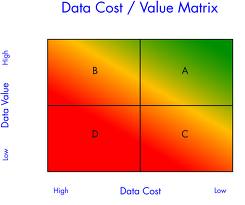
Got into a discussion on LinkedIn over the last couple of days – started with the innocuous post “Which ERP is Best…” and I was kind of promoting my recent blog post which states that you can’t just ask such an open ended question – there’s far too much to determine prior to even deciding if ERP is an option – it’s like asking a doctor “What’s a good medicine for a 40 year old man.” There’s not enough information in the question to provide a relevant answer.
Then the discussion thread took a turn. A couple of the posters* who’d had some experience with the softwares in question had commented on how they’d been given a quote for the said software, and when they didn’t respond immediately, huge discounts suddenly emerged.
This is common in the software sales industry.
I recall a recent software publisher where I was working to help the install base – I’d asked the sales department for a sales quote to help a current customer price out a add-on project we were considering for them.
The blank quote form had a column for ‘discounts’. I asked, why, when we actually set the prices as the software publisher, did we discount? Why not just charge the ‘deal’ price and get on with business? And why start with ‘discounts’ in the first place? Wasn’t our software worth the price?
Turns out that was not the game.
The ‘trick’ was to offer huge discounts on EVERYTHING – 60% – 70% with lots of stuff thrown in free. But then, under the last line, the annual maintenance was priced at 20% of list price. Which meant over 5 years, the customer would actually pay the highly inflated price – but upfront they got a good ‘deal’.
Needless to say, I didn’t stay long with that particular publisher.

The point comes back to value. Interesting thoughts on the discounters.
Software companies, resellers, implementation partners – just like everything else, there’s a variety of talent levels.
For some, simply getting the sale is the one goal, the only goal – and with an unfocused implementation, the consulting hours drag on for billable months/years. These are the wheeler dealers, the discounters, the year-end closeout guys – the sale is the thing, the sale is the goal. And once you drive that used car off the lot, the upkeep (read ‘implementation consulting hours’) go on forever. But the goal is achieved the day the sale is signed.
For others, the sale is only the beginning. There’s much bigger fish to fry – the outcome of the project represents the ultimate prize and one with far more worth to both the customer and consulting firm.
The focus here is on a project that brings a great deal of value to the client company.
Can I make money for my client by cutting his inventory with JIT demand planning? Or can I save him 33% of his warehouse labor costs with Warehouse Management and Planning?
The point is, if I can save a client a million a year – my future success becomes easy. I like to think of it as the golf course rule. Save a guy a million bucks – he might just brag about it on the golf course to his buddy. And his buddy might just want to save a million bucks too!
There are lots of people in the industry that focus on value rather than price.
If a consulting firm is focused on bringing value, they’re measuring value, judging value, weighing value – and they get better at it over time. So, if I can save you $1.2m a year in (labor /inventory/whatever) do you think I’m coming back to you with a bigger discount?
Or am I asking when you want to start saving this $1.2m a year?
One thing I’ve noted with my clients, once we’ve identified the ROI, quantified the ROI, looked at the proof of concept on the ROI – it’s my clients pestering me to get the vendors starting the project ASAP, rather than the other way around.
And of course, a good vendor is booked at least a few weeks in advance – but sometimes months. This week, we’re working on June start dates.
Discounts tell a lot about the real worth of the project.
You can reach gh@genehammons.com or use the comment form below.
*further investigations revealed the commenters actually were in marketing for competing software products – good for them for stepping up.
